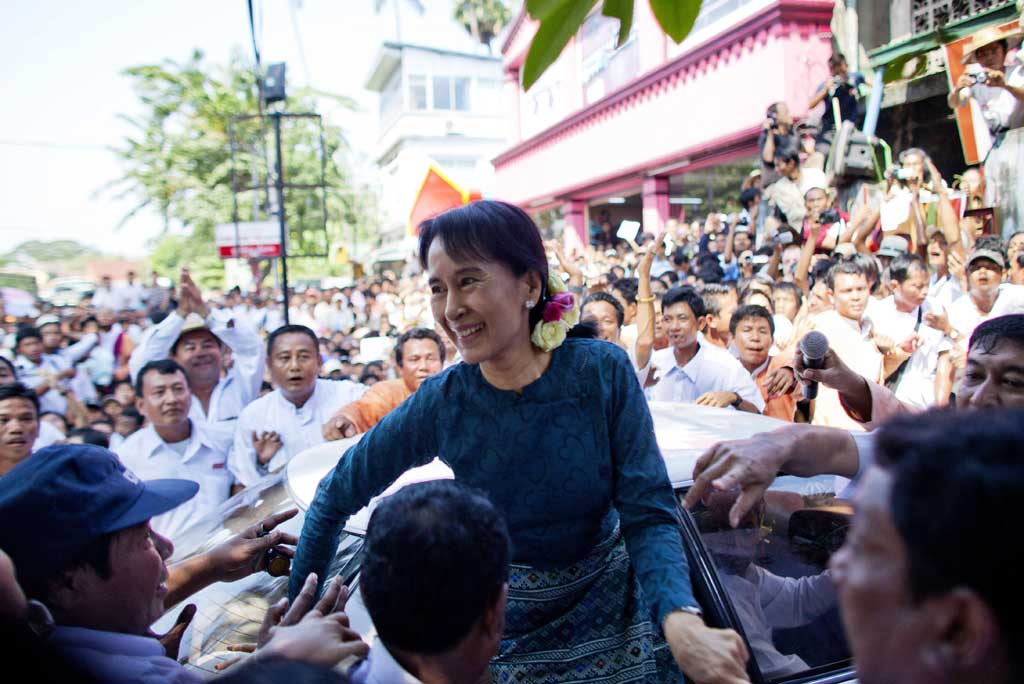The Dictator’s Learning Curve, By William J Dobson
In the face of popular unrest, tyrants have got smarter – but they can still be beaten

The South African restaurant chain Nando's ran a funny ad last year, which showed an ageing African dictator, bearing an uncanny resemblance to Robert Mugabe, sitting alone at a large dining table and lamenting the fall of other dictators. One by one they disappeared, to the tune of Gene Raskin's English lyrics of that old Russian song, "Those were the days". The ad sounded triumphalist: with the Arab Spring, the time of strongmen was coming to an end.
Not so fast, William J Dobson says, in his thoughtful journey through formidable dictatorships of our time, where smart, authoritarian leaders have learned clever tricks to ensure that they do not become yesterday's men. Dobson is politics and foreign affairs editor of the online magazine Slate, has been an editor at the stately Foreign Affairs and directed the spunky Foreign Policy in the US. He visited countries where leaders have devised new ways to resist change. The picture he presents makes the world complicated, because that's the way it is; just as countries emerging from the Soviet grip in 1989 did not automatically turn into Western-style democracies, the Arab Spring did not lead to Middle Eastern dictatorships falling like dominos. Even the ghastly end of Gaddafi has not stopped Syria's Assad from using brute force against his people.
Instead of offering caricatures of vintage dictators, Dobson observes the more dangerous trend – of dictators adopting the form of democratic governance, while draining it of any substance. He goes to Russia (where Putin became prime minister and then returned as president), China (where the Communist Party responded to growing restiveness by delivering economic growth and establishing electronic surveillance), Venezuela (where Hugo Chávez changed laws so that he'd win elections, and used the power to annihilate his opponents), and Malaysia (where the ruling party has tied the charismatic opposition leader, Anwar Ibrahim, in legal cases). The web these leaders weave refuses to allow freedom any room to breathe. But the web does not kill freedom – a calculated risk that the dictators take.
If in the past the Soviet Union sent writers to the Gulag and tortured its prisoners, now its law officers will close down human-rights organisations because they use illegal pirated software, or fail safety inspections. In China, at one time the Party sent tanks to intimidate students; now it closes roads through which they might march because of repairs. Ostensibly to identify fraud, Chávez demands the names of three million people who had voted for a presidential recall. Once the list is in the government's hands, the state fires managers, doctors, and nurses who had voted for the recall.
While Dobson's journey presents the bleak side, he also offers hope. He introduces Gene Sharp, the Massachusetts professor, whose step-by-step guidance to overthrow dictators using peaceful means makes Gandhian civil disobedience relevant in this century. Dobson introduces us to heroic characters who live that: a Chinese free-speech lawyer, a Russian environmentalist, and countless others, who refuse to bow because the dictator commands.
The longevity of dictators may seem depressing, but Dobson sees hope in examples like the changes under way in Burma. I was a reporter in Jakarta when Suharto's regime collapsed in Indonesia in 1998, and talked to other reporters who had covered Indonesia for a long time. They said they had seen such student upheavals, and nothing much would come of it – Suharto had ruled for 32 years. But days later, he was gone; Jakarta was in flames. It reminded me of Jean-Francois Revel's 1985 book, How Democracies Perish. Revel felt that the inherently chaotic structure of democracies wouldn't be able to withstand the purposeful discipline of the Soviet empire. Within four years, the Soviet Union – and its empire – ceased to exist. The people had spoken, as they continue to do so, as Dobson shows. Their time will come.
Subscribe to Independent Premium to bookmark this article
Want to bookmark your favourite articles and stories to read or reference later? Start your Independent Premium subscription today.

Join our commenting forum
Join thought-provoking conversations, follow other Independent readers and see their replies